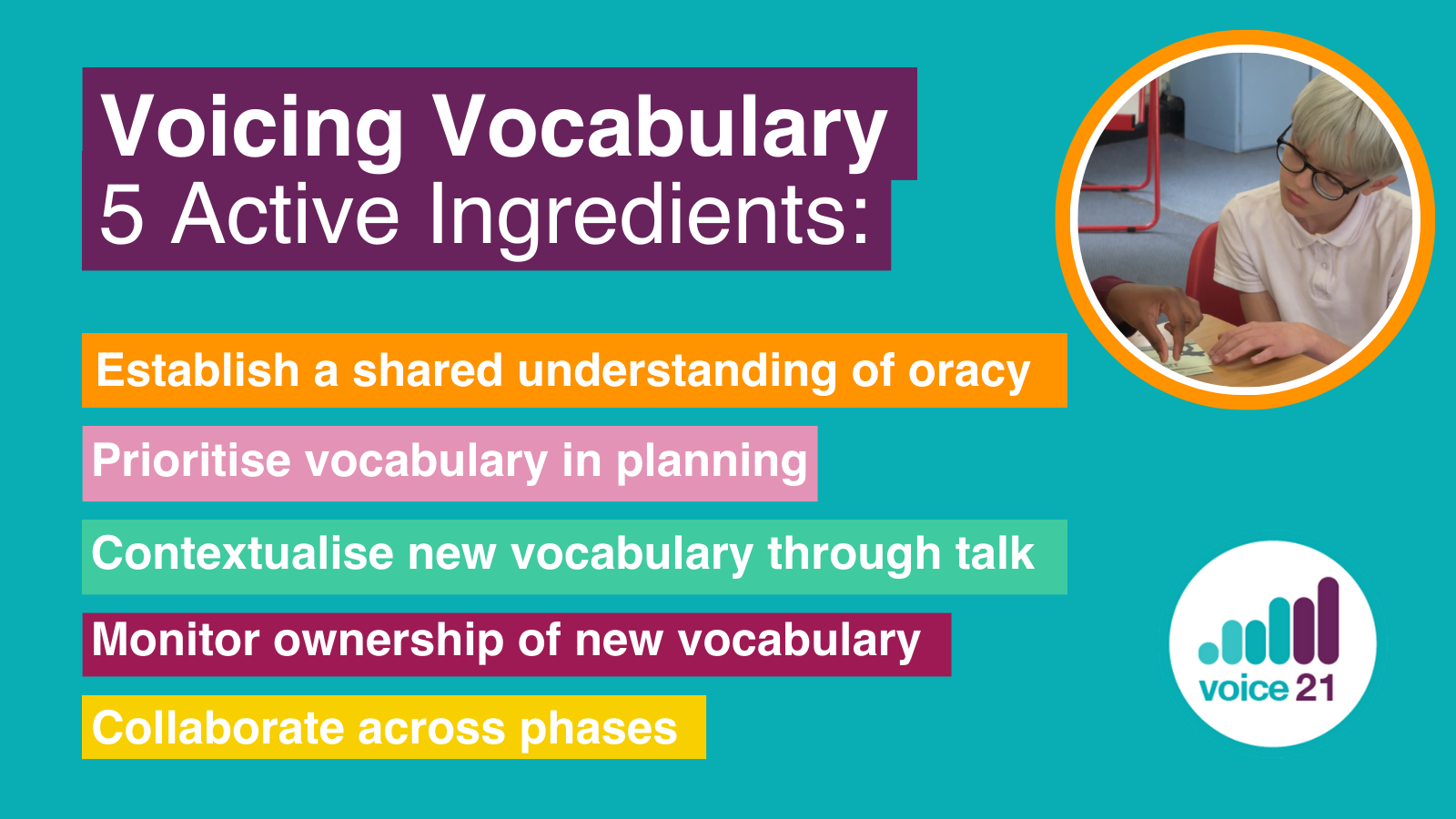
Looking ahead to our much-anticipated session (31st October) on how you can transform the way you can teach vocabulary, for our final installment of our #OracyOctober articles we’re taking a closer look at the five active ingredients to an oracy-centered approach to vocabulary development.
For further practical guidance and support on developing an oracy-focus towards vocabulary development, check out our Voicing Vocabulary 2021-23 Report.
To use talk for vocabulary learning across a school, teachers first need a shared understanding of high-quality oracy practice.
In oracy-rich classrooms, placing talk is at the forefront of teaching and learning provides students opportunities to hear and use new vocabulary in context and allows students the space to build confidence to speak with specificity in lessons.
This crucial first step is the cornerstone of all oracy practice and allows you to teach oracy explicitly. This, in turn, will ground the next ‘active ingredients’ of your oracy-centered vocabulary approach in a necessary context through which students can not only understand what you’re doing but why you’re doing it.
Discussion and decision-making around which vocabulary to teach is vital both within schools and across phases.
If you are aware of which words will be most useful to teach in any given class, for any given subject (and importantly, why they are important), the teaching of language will be more purposeful.
During our Voicing Vocabulary study, participants benefited by teaching fewer strategically chosen words in greater depth. Teachers found that the quality of vocabulary mattered more than quantity.
When students are able to use newly learned vocabulary accurately in a given context we can feel confident that they have ‘ownership’ of it. However, learning new vocabulary is a process that takes time as students are introduced to words that are gradually embedded in their productive vocabulary.
The process can be split between an ‘input phase’ and an ‘output phase’. During the input phase, students are introduced to new vocabulary and are given multiple opportunities to hear and begin experimenting with new language.
During the output phase, students are encouraged to use recently learned language independently in speech as they build towards word ownership. This process creates a depth of word knowledge as well as creativity with new vocabulary.
Once students’ familiarity with new language is established (through input activities) teachers can create meaningful oracy-centred opportunities for vocabulary output. Output activities allow students to demonstrate their ownership of recently learned vocabulary and enable teachers to judge how effectively new vocabulary has been learned. Voicing Vocabulary participants reported that they now have more awareness of gaps in their students’ vocabulary knowledge.
“Towards the end of a scheme of learning or topic we’ll use something where they can pull all of their ideas together and use oracy to showcase the vocabulary they’ve learned throughout a unit.” – Bethany Collins, Year 5 teacher taking part in the Voing Vocabulary Project
Developing sustained partnerships between teachers can improve students’ experience of the primary to secondary transition.
Typically, preparation for transition focuses on the environmental and social aspects of school life. Whilst this is extremely important, studies suggest that many students also experience disruption in academic outcomes during this time. In particular, , there is a dramatic increase in the amount of new language that students encounter across the curriculum, increasing academic challenge.
To learn more about how each participant school improved continuity of practice and increased understanding of language expectations across phases, click the link below.
© 2024 Voice 21. Voice 21 is a registered charity in England and Wales. Charity number 1152672 | Company no. 08165798